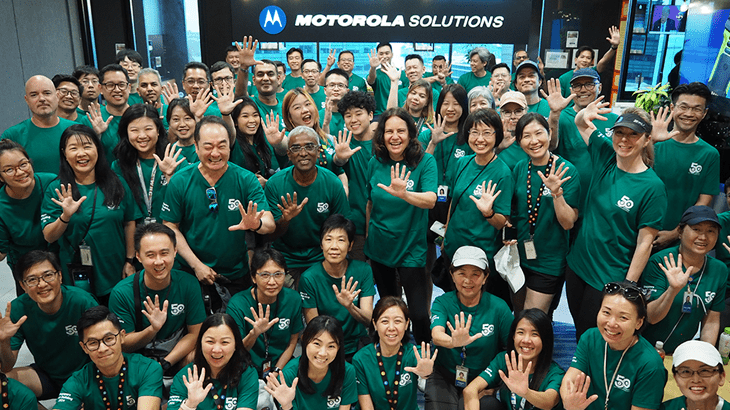When CXposé.tech had a chat with Thomas Been, he had just arrived as the newly minted Chief Marketing Officer at Domino Data Lab, an Enterprise MLOps platform trusted by over 20% of the Fortune 100. The company’s goal is to help organizations scale up their data science capabilities, and unlock better ways of working – from developing better medicines, to adapting risk models to major economic shifts, or simply recommending the best purchase to make at the right time.
We wanted to hear Thomas’ thoughts on how current B2B marketing looks like today, and spoke about how automation and the rapid adoption of AI solutions have removed the need for marketers to work on mundane or repetitive tasks, while refocusing on more strategic needs of the marketing organization.
Tech(ie) on Marketing tech
A self-confessed technologist, Thomas admitted that the jump to marketing felt like a natural step for him.
“I’ve always been fascinated by the impact that technology, data, and then people, can have. This is what becomes the transformation engine. All the latest tech waves we see, like cloud, digital transformation, AI, are all based on these ingredients.”
Thomas also discovered early in his career that he really enjoyed customer relations, which was the reason why he started his career in sales and pre-sales engineering roles. As Thomas pointed out, regardless of sales, pre-sales engineering, and marketing, all of these roles place customer needs at the heart of everything they do.
“You are offering a journey to your customers, the promise that they will be able to transform and have better products. And you need to explain to them how data, how technology, and how people are going to allow them to go on that journey.”
By keeping an openness about how these different domain knowledge help build a holistic customer experience vision, Thomas is able to seamlessly integrate the needs of his customers onto this journey of digital transformation.

Being Humanistic About Customer Obsession
When Jeff Bezos coined the term “Customer-Obsessed”, the industry was already working with similar concepts such being customer-centric, and customer-focused. For Thomas, when the culture of being customer obsessed started taking shape in his organization, that was when he saw the opportunity to marry innovation with the company’s promise to transform how customers can benefit from them.
Customers are not the only ones benefiting from rapid technological advancements.
“There’s a big revolution happening with AI that’s changing the lives of marketers. I have been telling my team to pay attention, because there is a moment where there will be a “Before” and “After”. “
While Thomas added that the outcomes which marketers will be tasked to deliver may not change significantly, the ways of working will change, accompanied with a sense of excitement.
“You are offering a journey to your customers, the promise that they will be able to transform and have better products. And you need to explain to them how data, how technology, and how people are going to allow them to go on that journey.”
The way Thomas had described the impact of AI on the marketing organization as deeply humanistic – it is about a people-to-people connection on how to make tech work for the customers. Thomas expects that AI will finally rid marketers of tasks that are “almost machine-like.” Repetitive tasks of data collecting and crunching off spreadsheets, creating ad banners variations for retargeting optimization, and so on.
“I think content work is going to be changed forever. Part of the analysis work is going to change as well because now we have tools that are accessible to everybody. This helps us to be more efficient, which means the opportunity for marketers to be more like people.”
“Taking decisions, having an opinion, taking risks… These are the things humans are good at, and this is where a marketer can make an impact.”
No Magic Tricks When It Comes To Successful Adoption
With his vast knowledge in technology, Thomas recognizes that any form of martech adoption takes time and some “best practices”. He mentioned that purpose remains the foundation of any successful adoption, and then alignment towards the identified common goal.
“Very often, I hear people talking about marketing technologies as if it was Harry Potter’s magic wand, and everything’s going to happen. Well, sorry to tell you that it’s not going to happen that way.”
Besides developing a common goal with a strong purpose, the need to deliver value quickly is also key to a successful adoption. Thomas shared that he’d rather start small, with a well-defined scope, where a proof-of-value can be done easily.
“Deliver value, and start learning quickly. You can’t just put all technologies in a big box and expect it to work by magic.”
Thomas pointed out that technologies cannot live in isolation, and that applies to the adoption of AI within the organization. A successful adoption of AI requires the organization to use the tech to deliver value, learn from failures quickly, adopt the best practices, and learn how this technology will make an impact in the organization’s context. Through rapid deployment, test and learning, using AI can become muscle memory, and that is when new, creative use cases can be ignited for the advancement of the marketing organization.








